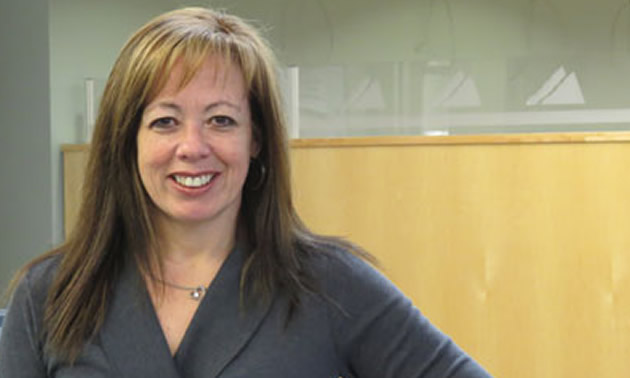College of the Rockies pilots innovative course
Using gamification and video game elements, instructor Leslie Molnar is making math fun for her students.

College of the Rockies math instructor, Leslie Molnar, is very happy with the pilot of her gamified calculus course. — Photo courtesy COTR
College of the Rockies calculus instructor, Leslie Molnar, is teaching Differential Calculus in a fun new way. While fun and calculus are not words that most of us think go together, Molnar has found the means to make it a reality - through gamification.
The Winter 2017 Differential Calculus (MATH 103) online course had two types of gamification elements incorporated into the curriculum. The course itself was presented in the form of a quest. The premise was that a ship containing a chest of precious emeralds sank and two competing factions of a pirate crew are following clues to find the emeralds.
Students earn skills (like the ability to fight, to not get seasick, to learn about ocean lore, etc) through their understanding of a calculus topic. With each new topic, there is a new adventure to participate in and puzzle to solve.
The second way in which gaming is incorporated is in the course’s methodology. Following the philosophy of a video game, students are not penalized for a lack of success the first time they face a challenge. As mastery of the topics is the goal, there are no time limits and no restrictions on the number of times a student can try an assignment or a quiz. The student cannot move onto the next topic, however, until he or she has reached an 80% threshold on their current topic. This repetition of the material means many students are redoing assignments and quizzes until they achieve 100 percent on them.
The course still contains all the content of a first-year calculus course, as well as set dates for traditional supervised midterm and final exams. Students need to complete to the halfway point prior to the midterm and be finished all course materials before the final exam.
Molnar was happy with the midterm results. “On the whole, students did really well on the midterm,” she says. “The free-flow timing is working for most of the students in the class.”
Though the story elements are completely optional and students can choose to simply progress through the levels of the course without really understanding why they are solving the problems, the gaming aspect adds a level of fun to an often challenging course.
Seamus Damstrom, one of Molnar’s students, says, “I have never been great in math but Math 103 has allowed me to improve on that. The creative concept was intriguing and allowed me to solve problems that were actually kind of fun.”
Fellow student, Shamaya Blanchette agrees. “Having a quest as our focus rather than just a normal math assignment makes the subject matter more interesting,” she says. “I like math anyway but this method of teaching gives it a whole new perspective.”
Molnar is working with the College’s instructional specialists to perform an educational research project on student engagement using this type of model of teaching. The development of the course was team-based. Most of the work was completed by Molnar, while College instructional specialist staff assisted. Fellow instructor, Ben Heyde, is the lead on the quest story and his terrific imagination has conjured caves, temples, a sea monster, a hydra, a wizard, a magical healing pool and many pirate fights.
Due to the success of the pilot project, Molnar’s gamified Differential Calculus will be offered again in Winter 2018 and the format will also be available for students taking Integral Calculus (MATH 104) in September 2017.
Learn more about University Studies courses at College of the Rockies at: cotr.ca/university





Comments